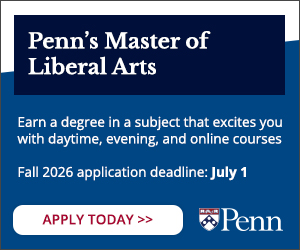
For generations, college-bound high school students have been faced with many decisions regarding the next chapter of their academic journey. What school is the best fit for your individual desires? Should you stay close to home or seek the freedom of living on your own for the first time? Do you prefer a large campus or a smaller school? What is the cost of attendance beyond tuition?
But perhaps one of the other biggest things for these prospective students to settle on is what field of study they would like to make their major. Although some have a firm idea while still in high school, many others opt to wait until they have some classes under their belt to decide which career path suits them best.
We spoke with officials from area school districts as well as Stockton University to get a better sense of what students are looking for these days when it comes to higher education.
Have you noticed any trends with prospective college students gravitating toward any specific majors?
“We are seeing a large majority of our students that are applying to Stockton—both as undergraduate first-year students as well as transfer students—interested in business. That includes concentrations in accounting, business administration, business analytics, finance … and then esports management, which is a fairly new major for us. But then in addition, we are seeing the health sciences; specifically at Stockton we have a general health science major and then an exercise science major. Those are two real hot areas for us. Within social behavioral sciences the two areas we’ve seen a lot of growth is psychology and social work. The only other area that I didn’t mention is computer science. That continues to be a hot major, but most recently because of artificial intelligence and some of the new developments, there are a lot of students interested.”
—Dr. Robert Heinrich, vice president for enrollment management, Stockton University
“Moorestown is a pretty traditional community. So the first thing is going to be in the health care world—doctors, nurses and along those lines. That is always big here. The second area is anything that might lead into the law profession. Anything in the social studies area, [political science]; those are all big with us. As well as finance.
“Of course, the STEM fields have such a wide array of choices for students. We do have a good number who have always been interested in the STEM field. I don’t really notice an uptick that way. What I see that is a little more trending with this last class is that technology and cybersecurity seem to be something kids are becoming interested in.
“And I found it interesting to learn there have been a number of students who were interested in public policy, particularly in areas of health.”
—Kat D’Ambra, K-12 guidance services administrator, Moorestown Public Schools
Has the pandemic had a big influence on any of the latest trends you are seeing?
“Anecdotally, I’d say that’s very likely. Students saw an emphasis on the importance of the health care field, whether that’s public policy or public health care. It kind of reinforced their ideas about going into that health care field, I think the pandemic might’ve had an impact that way.”
—Darren Gamel, guidance counselor, Cherry Hill High School East
“I think the pandemic has definitely impacted how students view their post-secondary options. In 2020 and 2021 we saw a lot of students either postponing their enrollment or choosing community college for concerns related to being sent home for safety protocols or being forced to use online learning instead of in-person classes. There were a lot concerns about the value of the ‘college experience’ for the high cost of tuition. These students would spend a year or more displaced from a dorm or not being in a typical classroom setting. It made people reevaluate what they were paying for. I think that was a big catalyst to some of the trends we’re seeing now with the increased interest in trades, [direct] employment and community colleges.”
—Jason Susko, supervisor of guidance, Eastern Regional High School
“Yes. One component of the pandemic is that students and their parents are now more interested in what their career outcomes will be upon the completion of their degree. They are asking more questions related to the jobs that specific majors will allow them to have access to.
“We’ve also seen a downturn in students selecting both education and nursing. We believe anecdotally, that’s really tied to both of those occupations being under stress during the pandemic. It’s unfortunately pushed some students away from those careers.”
—Dr. Robert Heinrich
How vital is it for school counselors to have a strong relationship with a student so they can help them choose a major that is best suited for them?
“It’s really my favorite part of the job, establishing those relationships. I think it’s really important in helping them find a major that is best suited for them because there are so many resources out there that they are now aware of.
“The more we know them as individuals—their personality, their interests, what they’re like—the more we can advise them on the best careers that will fit them. Getting to know them well and having a good relationship is to their benefit.”
—Darren Gamel
“It’s important to discuss your likes, dislikes and interests with your counselor in order for them to be able to provide suggestions on future jobs and careers that the student might enjoy. From that relationship the counselor can offer possibilities that the student may not have previously considered. The more a student shares with their counselor, the better the counselor can equip themselves to offer new and different career possibilities.”
—Jason Susko
“That relationship is critical. In our district, a student is assigned to a counselor as a ninth grader and they stay with that counselor through their four years. In a perfect world, we are seeing that student at least twice a year, if not more often, depending on the student. And we are building relationships not only with the student, but also their families.
“Those relationships become very important, but I think it’s also about the tools that you use to help students. A few conversations here and there aren’t really going to dig out the core of what students are interested in. It really comes out when we do core programming with them and course selection.”
—Kat D’Ambra
Are high schools helping students prepare any differently with regard to picking and choosing a major?
“I think high schools have increased their available programs and focus in recent years to help students prepare for post-secondary life. I know our counselors spend the majority of their time in the beginning of the year focusing on senior needs and preparing them for the next step. But the preparation doesn’t begin there. It really starts freshman year and intensifies as the student progresses through high school.”
—Jason Susko
“What differs from school to school comes down to resources. The counselor-to-student ratio is going to be huge. Some places have more kids, others have less; so resources are critical for thinking about what type of programs you can run for your students and their families.
“I also think that targeting population is also critical. First-generation students need something different than students whose families have gone to college and have a lot of resources at their disposal.”
—Kat D’Ambra
“A platform we’ve used for almost 20 years now, but has evolved, is a platform called Naviance. It’s really helpful when it comes to the college and career search options. But it’s also become a lot more helpful for kids who are trying to figure out what majors and careers line up with their interests and strengths.
“We started getting freshman into Naviance and showing them how to use it to at least get them thinking about careers and majors that line up with their strengths and personality. That’s something we didn’t do 10 years ago, now I think a lot of schools in the area use this program.”
—Darren Gamel
Click here to subscribe to the free digital editions of South Jersey Magazine
To read the digital edition of South Jersey Magazine, click here.
Published and copyrighted in South Jersey Magazine, Volume 21, Issue 5 (August 2024)
For more info on South Jersey Magazine, click here.
To subscribe to South Jersey Magazine, click here.
To advertise in South Jersey Magazine, click here











